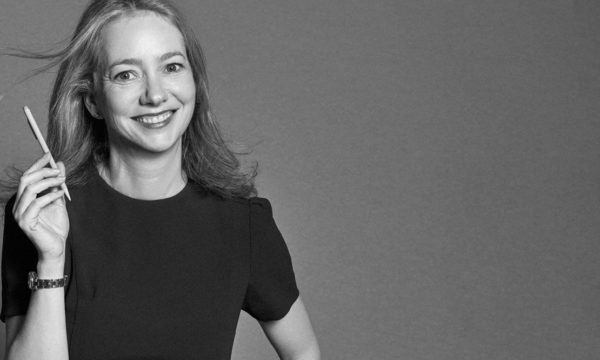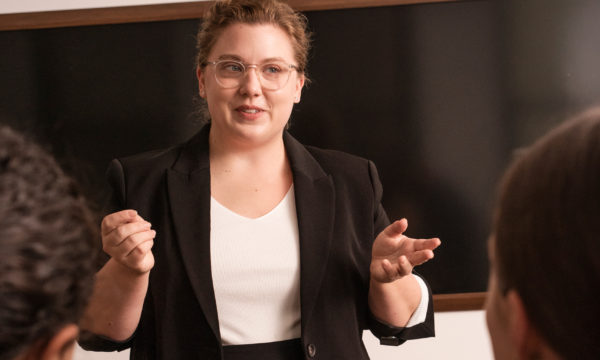Why Having a Peer Mentor Can Be the Best Move
October 04, 2019 | Filed in: Your Career
When we think of mentors, we often picture someone who is a bit older and more experienced, who is able to give career and life advice from a distanced perspective. However, there is an argument to be made for seeking out a mentor who is closer in age—they too have a lot to offer. Below, novelist Vanessa Hua shares her own experience with a peer mentor and gives some tips on building and maintaining a relationship of equals.
I first heard about Angie Chuang when we were attending rival high schools in the suburbs east of San Francisco. Two years older than I am, she was also the daughter of Chinese immigrants. In college, she would carve out a journalism career that I would follow: columnist and features editor at the same school newspaper and later, a reporting fellowship at the Los Angeles Times.
Want more M.M.? Sign up for our newsletter.
We didn’t bond, though, until we both ended up at the Hartford Courant in grueling cub reporting jobs. We both felt out of our element in this post-industrial city. We would commiserate about working weekends and late shifts, learning to drive in the snow, and the lack of good Chinese food. When I came down with the flu, I called her—“I’m so sick,” I sobbed, delirious and desperate—and she arrived with medication and canned soup. It was the first but not the last time she’d come to my rescue.
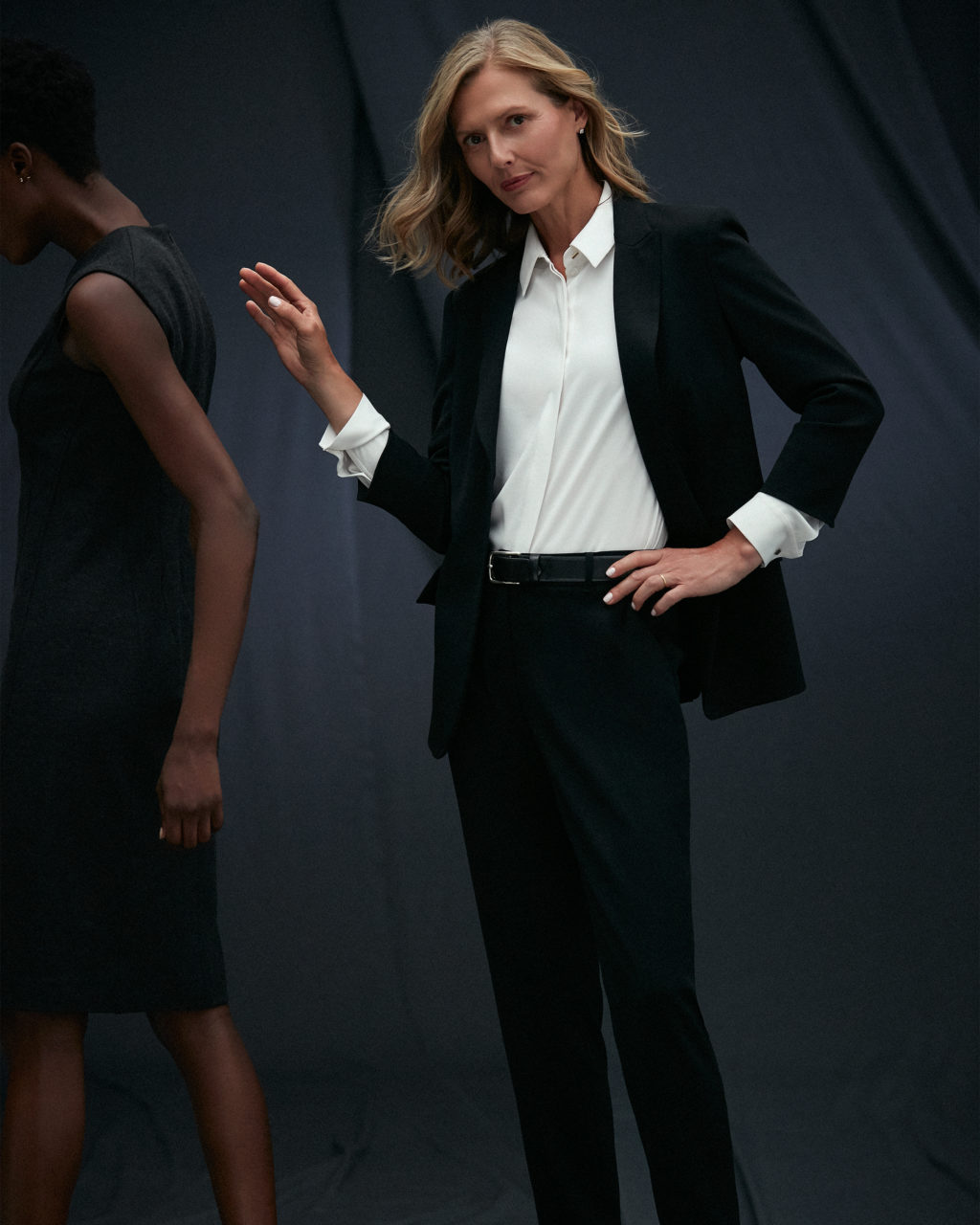
The Hoffman blazer, the Mejia pant, the Lagarde shirt, the Wide Strap belt, and the Bezel earrings.
Within months, we’d formed a writing group in Hartford that also served as a support group for other young reporters at the newspaper. We began trading our work then, and though we haven’t lived in the same place in two decades, we remain peer mentors.
While I have had traditional mentors too—those established in their careers, a decade or more older, who provide strategic and emotional support—I cherish my relationship with Angie. Together, we’ve come up in our careers, even as our paths as journalists, writers, and teachers have diverged. Today, I’m a fiction writer, newspaper columnist, and freelance journalist working on my third book. Angie is a tenured journalism professor who writes literary nonfiction and scholarly articles. We still have many shared interests, but most of all, we have our history and our friendship. As a result, we have been more successful than if we’d gone at it alone.
Here’s why a peer mentor is so great:
You Can Hook Each Other Up
You and your peer mentor are in the struggle together. If you see a job, fellowship, or another professional opportunity that would be a perfect fit for your peer mentor, send it to her and encourage her to apply. Offer to read her application or proposal. If she succeeds, then she may end up in a position that may benefit you later.
I urged Angie to apply for a demographics/race reporter job at the Oregonian, where she covered issues that I would eventually explore at the San Francisco Chronicle. I sent her the posting for the first academic job that she landed. I also e-mailed her about the contest run by the publisher that produced her memoir, The Four Words for Home, and would later my short stories, Deceit and Other Possibilities (which Counterpoint Press is reissuing with additional new stories next spring.)
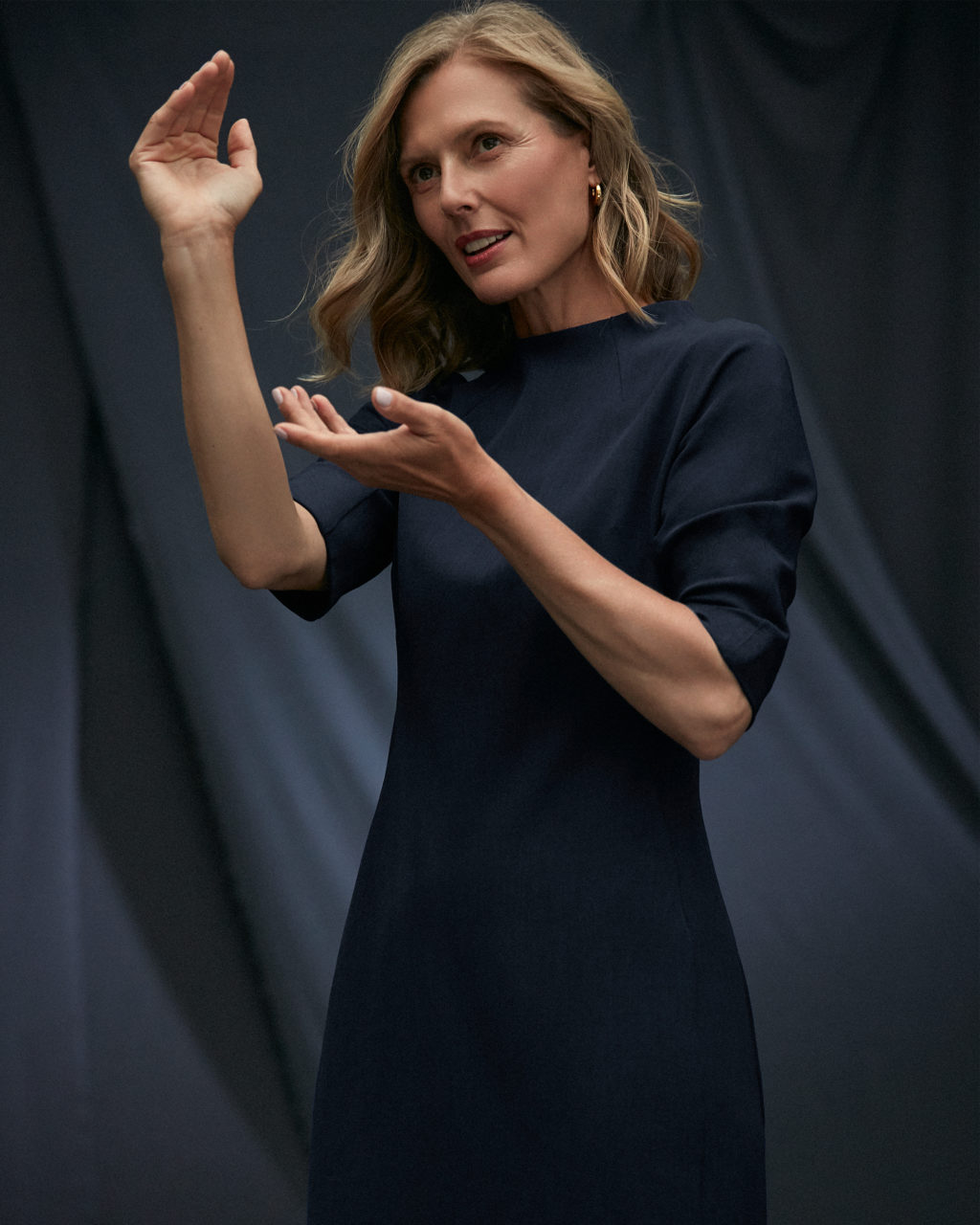
The Farnoosh dress.
Likewise, she told me about the Writers Grotto, a workspace where I now teach. She helped me strategize when I developed a demographics beat at my newspaper; she’s read and made suggestions on countless drafts of my writing in several genres—including this piece; she’s looked over applications of all kinds; she’s written letters of recommendation; and she’s served as a reference. When I saw a call for nominations for Aspen Summer Words, I asked if she could put me forward for consideration, and I received the festival’s fellowship for emerging writers.
With traditional mentors, I’ve felt guilty at times for leeching off their knowledge and advice, no matter how much satisfaction they may take in sharing it with me. It can also be harder to schedule time with them. Given their prominence in the field, they may be inundated with requests and responsibilities. Though I’ve been fortunate with mine, I’ve heard about mentors who stop replying to emails or forget to send letters of recommendation.
With a peer mentor, the relationship is reciprocal, and I appreciate being able to return the favors wholly. You show up to each other’s events, buy each other’s books, boost each other on social media, make introductions, and much more.
You Can Keep it Casual
Sometimes, weeks or a month or two will go by before we have time for a phone conversation. More frequent texting keeps us in touch, though, and if either of us needs help or advice pronto, we’re usually able to squeeze it in. If we can’t, we say so, too—and neither of us is offended because we know that we’ve had each other’s backs in the past and will in the future.
Because Angie and I have faced similar challenges and know each other’s work, preoccupations, and passions intimately, we can get to the point at once, within days or weeks, or on the fly, when we quickly run ideas past each other. Sometimes we act as accountability buddies—“Give me a deadline,” one of us might say to another—which in turn helps provide a sense of control over our careers.

The Maggie dress and the Bezel earrings.
Feeling stuck in your career? Your peer mentor might suggest another opportunity, or help you navigate your way out. When you doubt yourself, they can boost your confidence—reminding you what you have achieved and what you can again in the future. If you get into a disagreement with someone at work, your peer mentor can talk out the situation with you. She shouldn’t cheerlead everything you do or say; she can remind you to take a step back to see the other person’s perspective.
Compared to a traditional mentor, a peer may be more familiar with your latest work, ambitions, struggles, and triumphs, and thus may have more salient advice. That said, an established mentor may be able to provide big-picture perspective or wield influence that you or your peers may not have—yet.
With Them, It’s Not a Competition
Studies have shown how mentoring can fail due to a lack of communication or commitment to the relationship, as well as competition between mentors and mentees. The power dynamic can also lead to sexual harassment. A male mentor advised me for almost a year, helping me shape a news feature that became a prized clip in my portfolio. When he hit on me, I was devastated to realize that someone whom I thought admired and respected my work—and me—in fact did not.
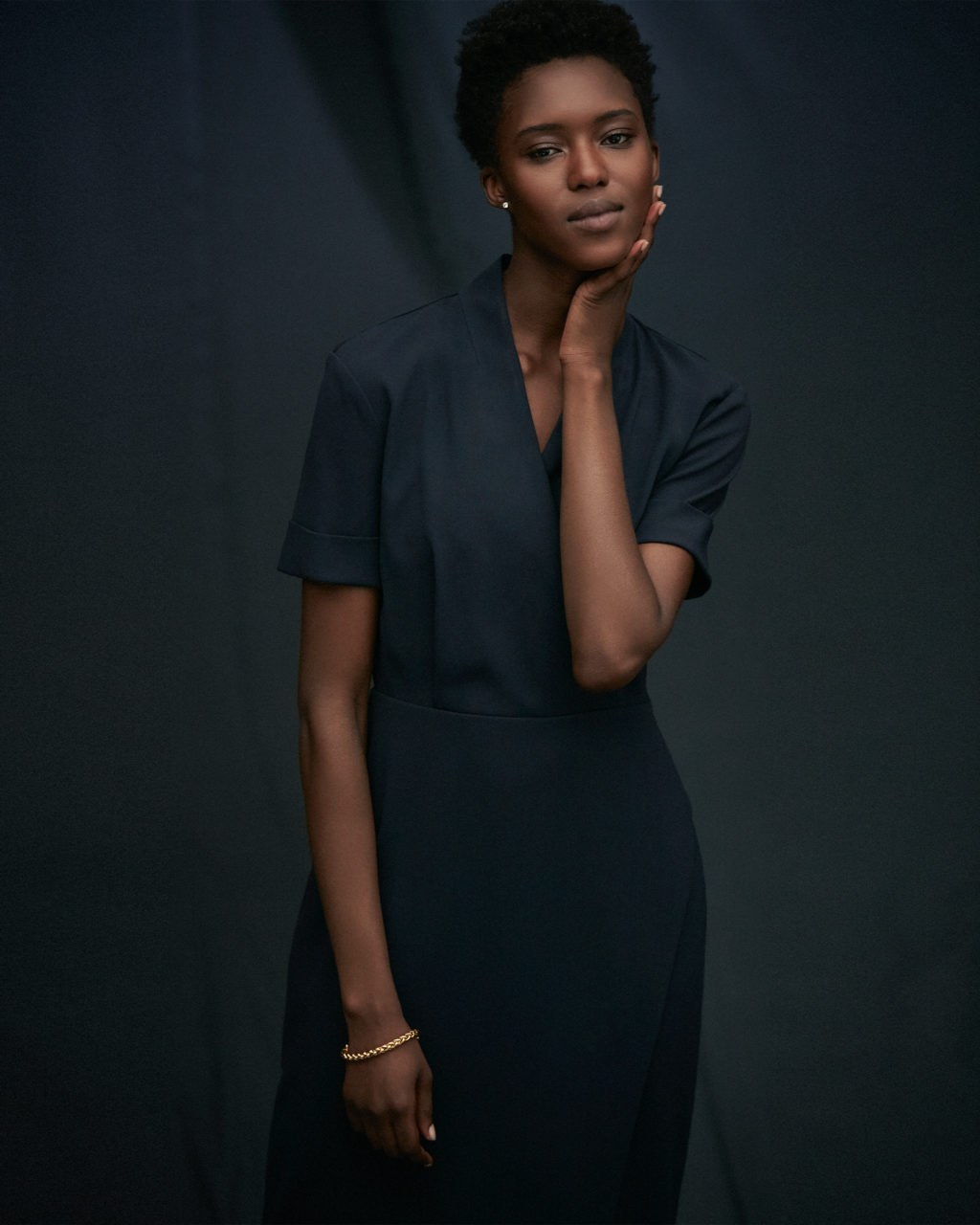
The Tory dress and the Bezel earrings.
Angie and I have shared, but not identical, interests. We covered different beats at the same newspaper and then the same beat at different newspapers. We have published books but in different genres: mine in fiction and hers in memoir. These days, my main focus is in the literary world, while Angie’s center of gravity is academia. When seeking out a peer mentor, you might consider both what you have in common and where you differ. Look for substantial overlap in the middle, while preserving the things that you each get to call your own.
What truly keeps professional jealousy at bay is that we know the dead ends, stops and starts along the way for the both of us. We share losses and celebrate wins.
They Can Expand Your Circle
When I was putting together a class on how to land reporting and writing fellowships, Angie not only provided me a sample of her own application, she also put me in touch with a former journalism student who shared her sample personal statement.
When another friend had to drop out at the last minute for a panel she had organized at a writing conference, I suggested Angie, who ably stepped in as moderator.
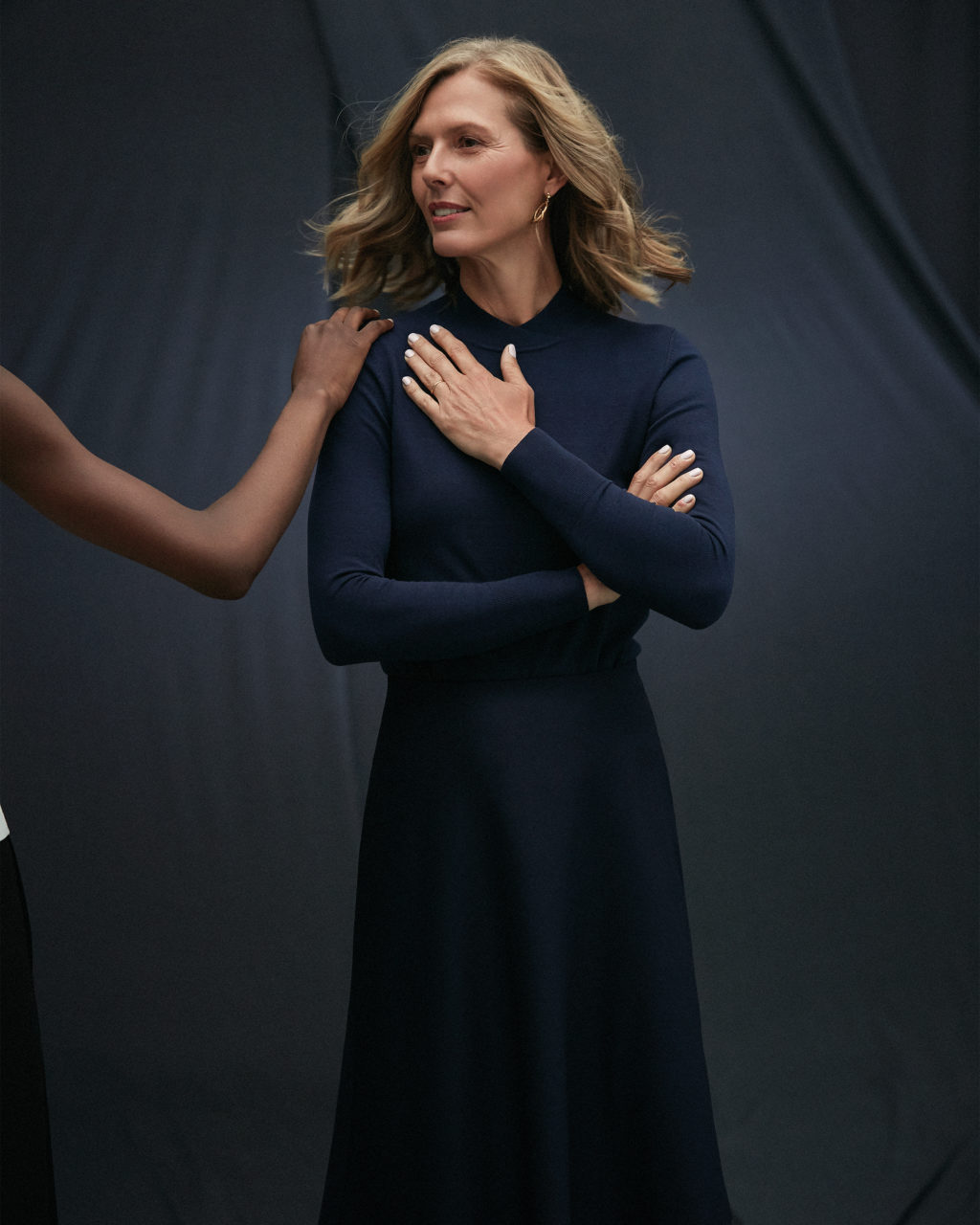
The Zora top, the Harlem skirt, and the Claressa earrings.
By making introductions for each other, you and your peer mentor expand your mutual network, which can be vital in getting the inside track, whether it’s a job posting that has not yet gone public, that key point you should emphasize on your cover letter or mention in your interview, or meeting someone who knows someone with the intel to further your career. The wider you cast your net among those you can trust, the stronger the support becomes.








